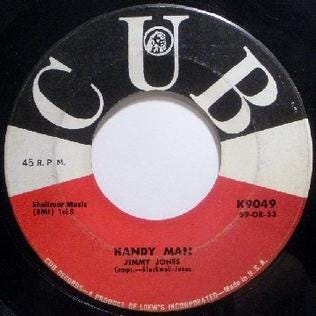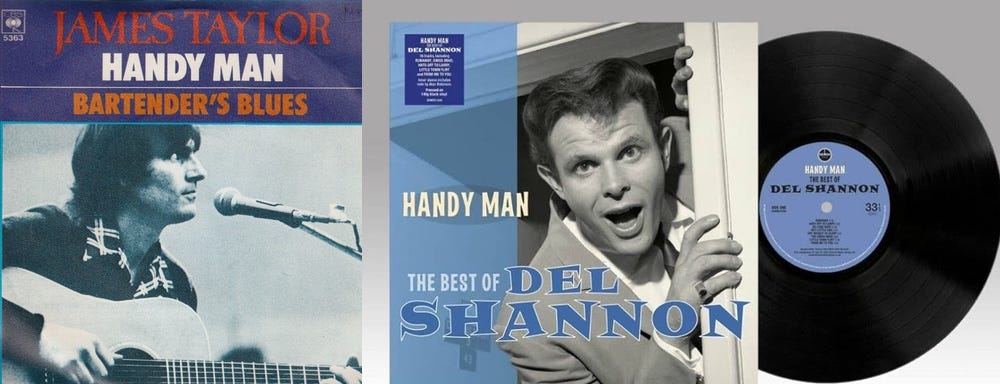Otis Blackwell already was an established songwriter in June 1959 when he changed the life of a young doo-wop singer from Alabama.
One of the top 1950s songsmiths whose work influenced early rock and roll, Blackwell already had written the sultry “Fever,” which was to be the signature hit for Peggy Lee. He also had penned “Great Balls of Fire” for Jerry Lee Lewis, not to mention “Don’t Be Cruel,” which began his lucrative association with Elvis Presley through his followups like “All Shook Up” and “Return to Sender.”
By contrast, singer Jimmy Jones, though the same age as Blackwell, had had none of his success. Coming to New York from Birmingham as a teenager, Jones’ first gig in Gotham was as a tap dancer. Then he joined a doo-wop group in 1954, before going solo five years later.
How the Song Happened
That is when Jones connected with the MGM affiliate label Cub Records. There he met Blackwell with whom he wrote "Handy Man," the tune that would become the defining song of Jones’ life and career.
Blackwell produced the disc and also made an unplanned cameo appearance on the record: When a flute player hired for the session didn't show up, Blackwell stepped in to provide a whistling part that helped make the song a hit.
“Handy Man" became a million seller, climbing to No. 2 on the Cash Box pop charts of Feb. 27 and March 5, 1960. (It easily could have gone all the way to No. 1, except that 64 years ago this week was the start of the eight weeks in which it competed with the chart-topping “Theme From 'A Summer Place'" by Percy Faith and his orchestra.)
Other Covers
Jones could never quite repeat his “Handy Man” success, but his song did have some notable rebirths. Del Shannon had a hit with it in 1964; then more than a decade later, James Taylor charted with a slower, soulful rendition in 1977.
Comparing the Jimmy Jones original with James Taylor's work, AllMusic critic Jason Elias commented, "Where Jones’s version was chipper and a little obnoxious," Taylor's take was "so laid back it’s almost somnolent."
The Lawsuit
Jimmy Jones pretty much dropped from public view after the early 1960s. That is until a quarter of a century later, when he made headlines with a lawsuit. Jones sued British rocker Boy George, claiming that Culture Club plagiarized "Handy Man" with its hit "Karma Chameleon."
The suit claimed the "Karma Karma Karma Karma Karma Chameleon" part of Culture Club’s tune was too similar to the "Come-a come-a come-a come-a come come a-come-a" part of “Handy Man.”
The parties settled out of court. Boy George always has insisted he did nothing wrong. "I might have heard it once, but it certainly wasn't something I sat down and said, 'Yeah, I want to copy this.’” The settlement with Jones, he added, consisted of "10 pence and an apple."
Our Take on the Tune
You never really forget the songs of your youth. Charlie was 10 years old in the summer of ‘59 when this tune hit the radio.
It was such a hoot when he brought the song to a joyous recent Flood rehearsal so we could all take it for a spin.




















Share this post